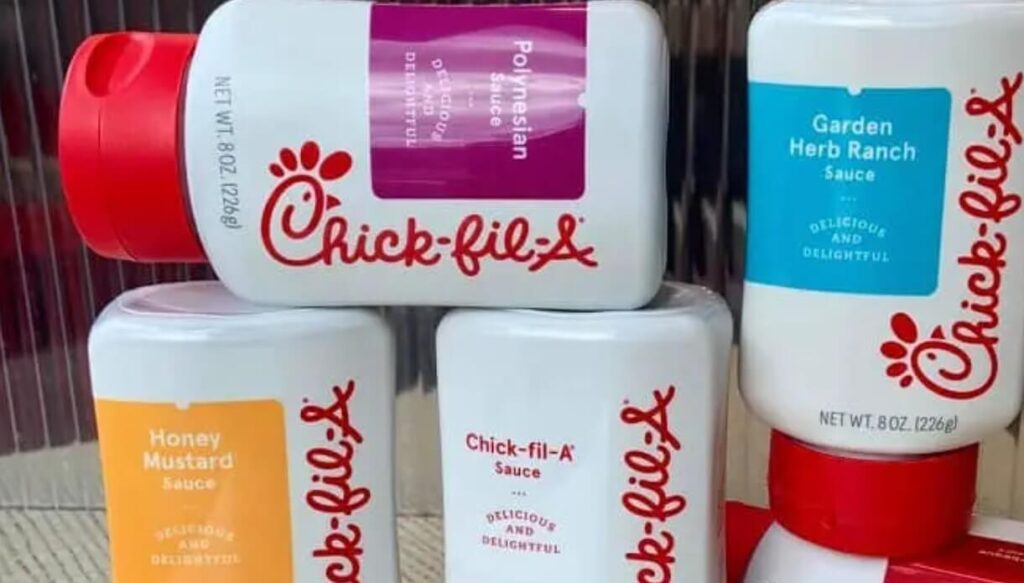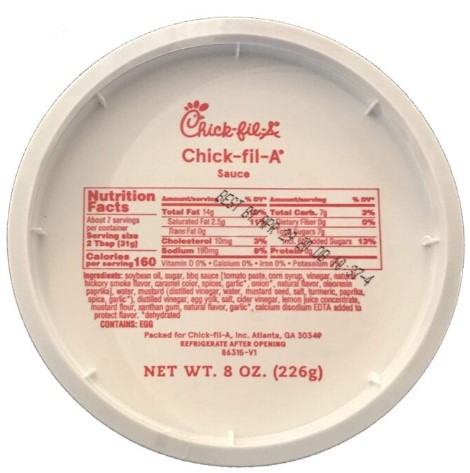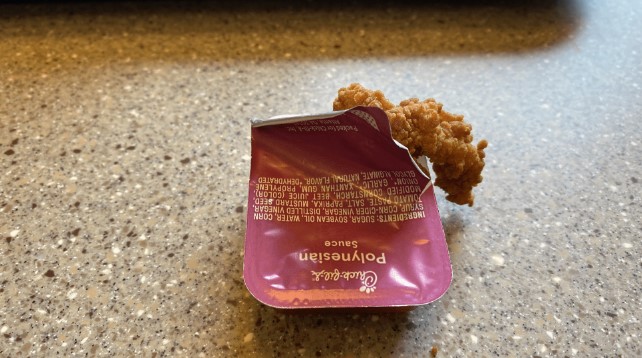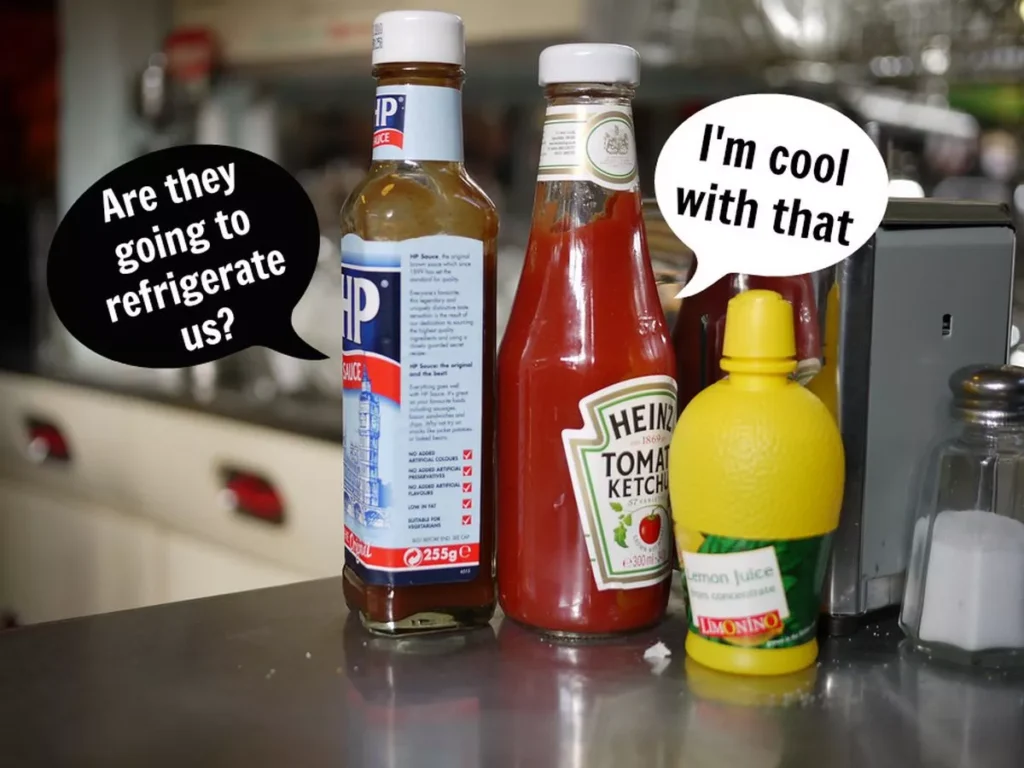No, Chick-Fil-A sauce packets do not need to be refrigerated. However, they should be stored in a cool and dry place below 70 degrees Fahrenheit away from direct sunlight. The packet itself is sealed airtight to ensure the product stays fresh and safe for consumption.
However, once it has been opened, it may start to degrade more quickly unless placed back in the refrigerator.
Additionally, if you are storing multiple packets together they can become sticky or clump together, so placing them in the fridge will help them remain separate and easier to use.
Therefore, the answer to your question “Do Chick-fil-A sauce packets need to be refrigerated?” is no. We will explore more amazing information on it in this guide. So, stay tuned.

Do Chick Fil a Sauce Packets Need to Be Refrigerated? Explore the Truth!
Chick-fil-A sauce packets do not need to be refrigerated before opening. These individual sauce packets are typically shelf-stable and can be stored at room temperature in a cool, dry place, such as in your pantry or kitchen cabinet. Refrigeration is not necessary until the packets are opened.
Once a Chick-fil-A sauce packet is opened, it’s a good idea to refrigerate any unused portion. Refrigeration can help preserve the freshness and flavor of the sauce. Simply seal the open packet tightly and place it in the refrigerator.
Most sauces can be kept in the refrigerator for a reasonable amount of time, usually several weeks to a few months, depending on the ingredients and preservatives used in the sauce.
Remember to check the individual sauce packet’s label or packaging for any specific storage recommendations or expiration dates provided by Chick-fil-A or the sauce manufacturer.
Proper storage helps maintain the quality of the sauce and ensures it remains safe to consume.
Do Chick-Fil-A Sauce Packets Expire?
Chick-Fil-A sauce packets do not have an expiration date, but they should be used within a few months of purchase to ensure the best flavor. When stored properly in a cool and dry place, Chick-fil-A sauce can last up to 6 months.
As with other sauces or condiments, it is important to check for any signs of spoilage such as discoloration or separation before eating.

Does Chick-Fil-A Sauce Go Bad If Not Refrigerated?
Chick-fil-A sauce does not need to be refrigerated, as it has a shelf life of at least two years when kept in a cool and dry place. However, if the sauce is exposed to light or heat, its quality may begin to deteriorate after six months.
It’s always best to store sauces in their original containers and keep them away from direct sunlight or high temperatures.
Does Chick-Fil-A Polynesian Sauce Need to Be Refrigerated?
Chick-Fil-A Polynesian Sauce does not need to be refrigerated. It is shelf stable and can be safely stored at room temperature for up to one year, although it should be used within three months of opening for best quality.

How Long Does Polynesian Sauce Last in the Fridge?
Polynesian sauce can be stored in the fridge for up to two weeks after opening. Be sure to keep it tightly sealed and store in an airtight container to maximize its freshness.
After two weeks, toss out any remaining Polynesian sauce, as it will no longer be safe to consume.
How Big is a Chick-Fil-A Sauce Packet?
A Chick-Fil-A sauce packet is approximately 1.69 fluid ounces in size, which equates to around 50 milliliters of sauce. This single serving size is perfect for adding a delicious kick to any meal or snack you may be enjoying.

How Long Does Chick-Fil-A Last in the Fridge?
Chick-fil-A can last up to 3 days in the refrigerator when stored properly. It’s best to wrap it tightly with aluminum foil or store it in an airtight container so that it stays fresh and doesn’t dry out. Be sure to check for signs of spoilage before consuming, such as an off smell or discoloration.
If you’re not going to eat your Chick-fil-A within 3 days, freeze it for a longer storage time.
Does HP sauce Need to Be Refrigerated?
No, HP Sauce does not need to be refrigerated. The product is shelf-stable due to its vinegar content and can be stored in a cool, dry place for up to 12 months. It’s important, however, that the bottle is tightly sealed once opened if you want it to last as long as possible.

How to Tell If Chick Fil-A Sauce is Expired?
Chick Fil-A Sauce does not come with an expiration date. However, you can tell if it has gone bad by examining the color and texture. If the sauce has separated or changed in consistency, then it is likely expired and should be discarded.
Additionally, if the sauce has a sour smell or off odor, then it is likely past its prime and should also be thrown away.
Do Sauce Packets Need to Be Refrigerated?
No, sauce packets do not need to be refrigerated. The shelf life of sauce packets is quite long, and they rarely go bad unless the packet itself has been opened or pierced. Some sauces may require refrigeration after opening, but most are good for a few months in the pantry.
Here are some key points about storing sauce packets:
- Unopened packages can usually keep at room temperature for 6-12 months
- Refrigeration should only be used if indicated on the package label
How Long Does Chick-Fil-A Last Out of the Fridge?
Chick-Fil-A products last up to three days in the refrigerator. To ensure they stay fresh, here are some tips:
- Store in an airtight container or wrap tightly with plastic wrap.
- Refrigerate at 40°F or below and use within 3 days of opening.
- Eat cooked leftovers within 3 to 4 days after cooking.
Remember that food safety is key when storing Chick-Fil-A products!

Do All Sauces Need to Be Refrigerated?
No, not all sauces need to be refrigerated. Some sauces can be stored at room temperature for long periods of time without spoiling.
The following are some examples of sauces that do not need to be refrigerated:
- Soy sauce
- Hot sauce
- Worcestershire sauce
- Mustard
These types of condiments have high acidity levels or other preservatives, which prevent them from spoiling quickly.
However, when in doubt, it is best to store any type of sauce in the refrigerator after opening.
Can soy sauce packets go bad?
Soy sauce packets typically have a long shelf life and are resistant to spoilage due to their high salt content and acidic nature.
However, over an extended period or under unfavorable storage conditions, the quality and flavor of soy sauce may degrade. Exposure to air, heat, or sunlight can affect its taste. It’s advisable to use soy sauce packets within a reasonable timeframe and store them in a cool, dark place to maintain optimal flavor.
If the packets appear damaged, leaky, or show signs of mold, discoloration, or an off odor, it’s best to discard them, as these are indicators of potential spoilage.
Can you eat expired chick fil a sauce?
While the expiration date on Chick-fil-A sauce is a guideline for optimal quality, it is generally safe to consume the sauce past that date if it has been stored properly and shows no signs of spoilage. Chick-fil-A sauce typically contains vinegar and high levels of acidity, which can act as preservatives.
However, it’s essential to inspect the sauce for any changes in color, texture, or an off odor. If the sauce appears discolored, has an unusual smell, or if the packaging is damaged, it is advisable to err on the side of caution and discard it to avoid any potential food safety risks.

How to Use Leftover Chick-Fil-A Sauce?
Leftover Chick-Fil-A sauce can be used in a variety of ways to add flavor and texture to your meals. Here are some ideas:
- Add it to scrambled eggs or omelettes for a delicious breakfast treat.
- Use it as a dip for vegetables, crackers, and chips.
- Mix it with plain Greek yogurt for an easy salad dressing.
- Drizzle over roasted potatoes or sweet potatoes before baking them in the oven.
- Stir into macaroni and cheese for extra zing!
No matter how you use your leftover Chick-Fil-A sauce, you’re sure to enjoy its unique taste!
Chick-fil-a sauce packets exploding
Conclusion
In conclusion, storing Chick Fil A sauce packets in the refrigerator is not necessary to maintain freshness.
While there are benefits to refrigerating sauces, such as extending their shelf life and preventing bacteria growth, keeping them at room temperature does not present a risk of spoilage or foodborne illness if consumed soon after purchase.
Ultimately, whether you choose to store your Chick Fil A sauce packets in the fridge or out on the countertop will be up to personal preference!
